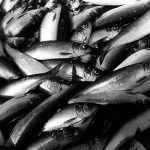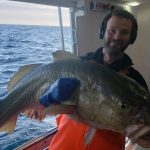United Cook Inlet Drift Association, or UCIDA, has expressed its distressed to learn that Rep. Paul Seaton has voted in favor of SJR22, in opposition to the best interest of commercial fishermen in Cook Inlet, Prince William Sound and all of coastal Alaska. Commercial fishermen in Cook Inlet filed action with the Secretary of Commerce asking for relief from the state’s mismanagement of salmon stocks.
Experts believe that UCIDA and other commercial fishing organizations across Alaska are put in a difficult spot when it comes to objective, scientific management of fisheries. The reason few years ago, the federal government transferred the day-to-day management of salmon to the state of Alaska. When this occurred, they said “here are the rules by which we want you to manage our salmon,” and the state agreed. The rules are outlined in the Magnuson Stevens Act (MSA), specifically identified as “10 National Standards.”
The main demand of UCIDA is that there should be a judge to instruct the state and the Board of Fisheries to manage salmon in compliance with federal law. Cook Inlet fish stocks are in trouble and are producing harvests at or below territorial times. Applying the 10 National Standards is our only hope for saving our salmon, industry and economy. Rep. Seaton has mistakenly focused on National Standard No. 4, which speaks to non-discrimination between residents of different states. The Kenai and Kasilof river dipnet fisheries are out of control, with bag limits that are three times larger than the salmon harvested by an average family.
UCIDA has focused its concern on the application of the federal rules designed to achieve optimum yield are being ignored by the state. Huge overescapements and underescapements are now the norm when they should be the exception.








